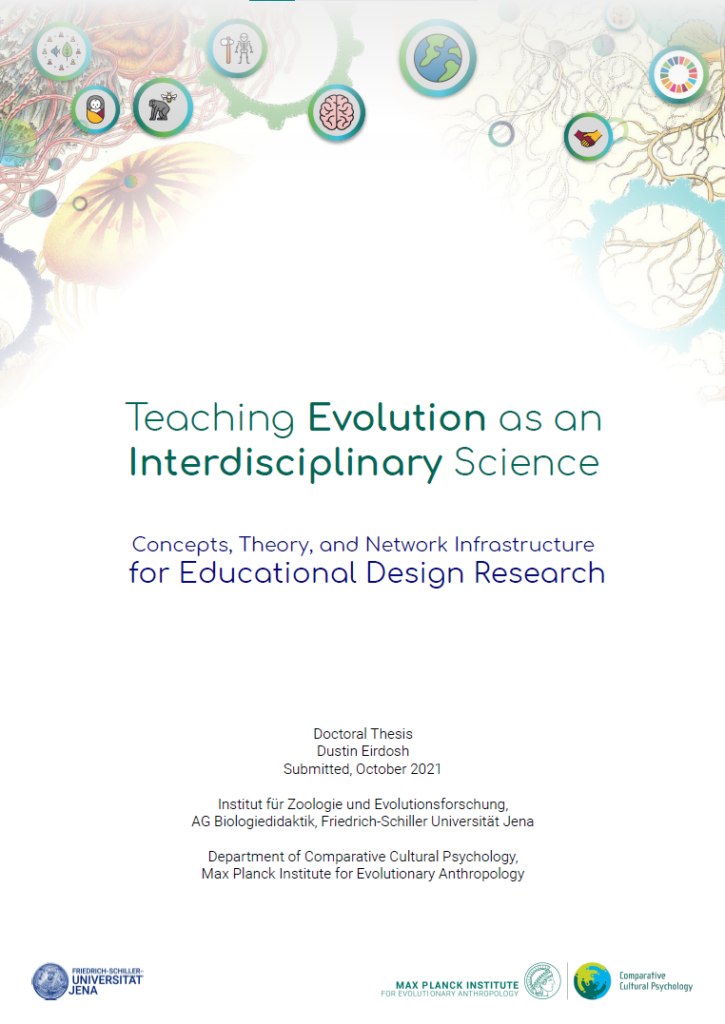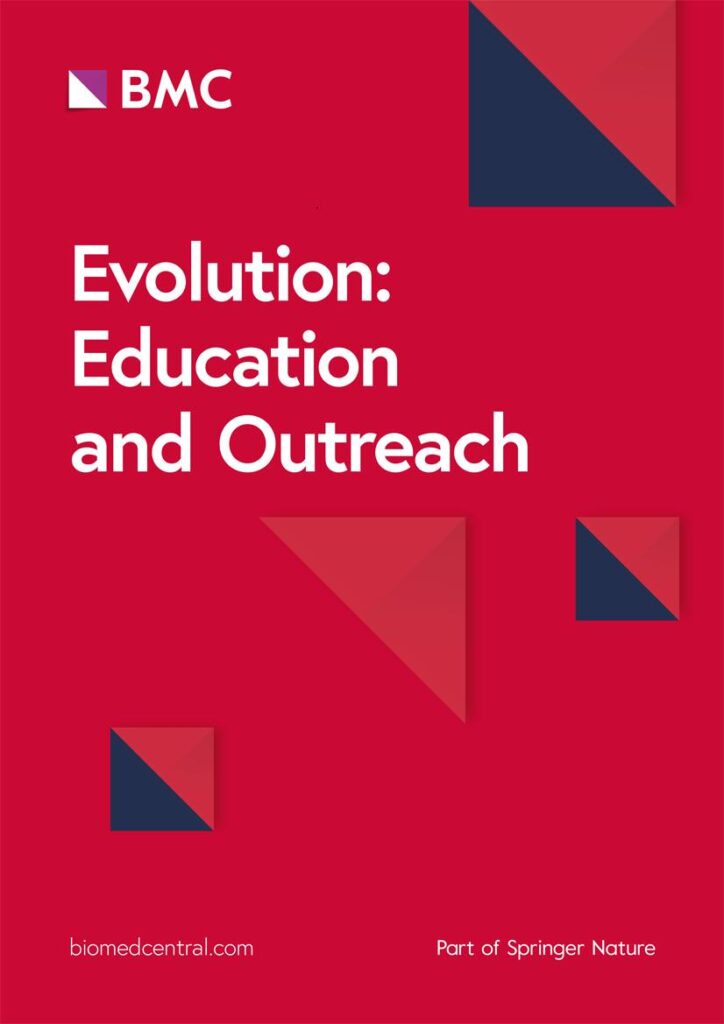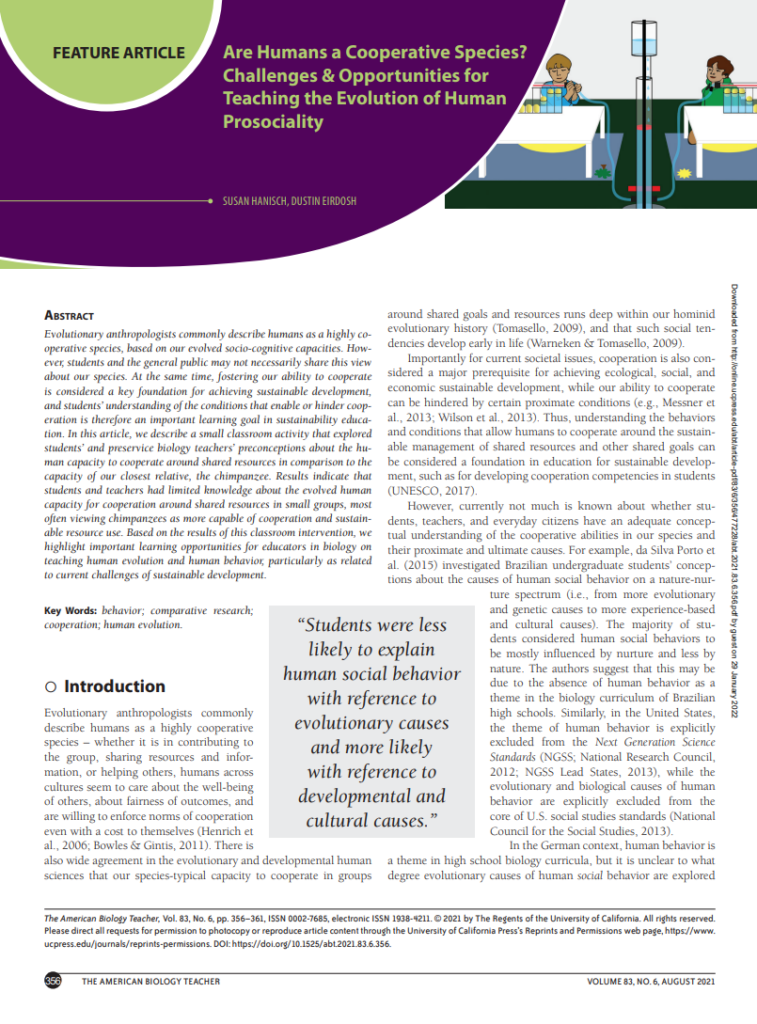Schülervorstellungen
Eirdosh, Dustin (2022): Teaching evolution as an interdisciplinary science: concepts, theory, and network infrastructure for educational design research. Jena. Online unter: https://www.db-thueringen.de/receive/dbt_mods_00051708
Evolution is an interdisciplinary science. Evolutionary theory is routinely employed across the overlapping domains of the natural, social, and computational sciences, as a high level generalization of processes of change within complex adaptive systems. Despite this interdisciplinary character of evolutionary science, evolution education remains almost exclusively the purview of the biology classroom within general education curricula around the world. This thesis engages conceptual clarification and educational design research to map and explore the educational potential of teaching evolution as the interdisciplinary science that it is.
Develop a lower secondary school training program on interdisciplinary perspectives in moral psychology
Develop a lower secondary school training program on deeper and more interdisciplinary perspectives in moral psychology
Develop a middle grades training program on foundations in moral psychology
Develop a middle grades training program on foundations in moral psychology
Develop a middle grades training program on foundations in moral psychology Weiterlesen »
Sherry, D. S. (2019). Does knowledge of evolutionary biology change high school students’ attitudes about healthy eating?. Evolution: Education and Outreach, 12(1), 1-11.
A small study was conducted at a New England high school and consisted of two research components: (1) a cross-sectional survey of students’ views about what “healthy eating” means and (2) an intervention experiment designed to isolate exposure to knowledge of evolutionary biology. Data were collected through the use of questionnaires and analyzed according to qualitative methods.
Rapid Assessment
Rapid Assessment is a methodology for conducting rapid, reliable, and valuable assessments of school or community culture.
Rapid Assessment Weiterlesen »
Hanisch, S. & Eirdosh, D. (2021). Are humans a cooperative species? Challenges and opportunities for teaching the evolution of human prosociality. The American Biology Teacher, 83 (6). https://doi.org/10.1525/abt.2021.83.6.356
Evolutionary anthropologists commonly describe humans as a highly cooperative species, based on our evolved socio-cognitive capacities. However, students and the general public may not necessarily share this view about our species. At the same time, fostering our ability to cooperate is considered a key foundation for achieving sustainable development, and students’ understanding of the conditions that enable or hinder cooperation is therefore an important learning goal in sustainability education. In this article, we describe a small classroom activity that explored students’ and preservice biology teachers’ preconceptions about the human capacity to cooperate around shared resources in comparison to the capacity of our closest relative, the chimpanzee.





